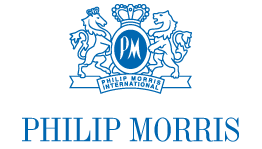Hot Check Crimes
- Home »
- Hot Check Crimes »
Penalties for Passing Hot Checks in Texas

While online fraud has received a lot of attention in recent years, people still get arrested for writing bad checks. This happens when someone writes a check knowing the amount is more than they have in their bank account. If you do this, you could face serious penalties under Texas law.
A “hot check” is just another name for a bad check or check fraud. Generally, the penalty for writing a bad check depends on the amount. In most cases, check fraud is charged as a misdemeanor, but this type of charge can rise to the level of a felony depending on the amount of money involved.
The bottom line is that writing a hot check can involve a lot more than getting a non-sufficient funds (NSF) letter in the mail from your bank. If you’ve been charged with writing a bad check in Texas, it’s important to discuss your case with a Texas criminal defense lawyer as soon as possible.
Penalties for Writing a Hot Check

Everyone struggles with money from time to time. Maybe you’re close to payday and need to buy groceries, or you’re counting on a big deposit to hit your account and don’t want to wait to make a purchase.
In many cases, people overdraft their accounts without doing it intentionally. In situations like this, you might have to pay a fee to your bank for insufficient funds, but you won’t face criminal charges.
When writing a hot check is intentional, however, it can rise to the level of fraud. In most cases, this type of crime is a misdemeanor. On the other hand, check fraud that involves a large amount of money can be prosecuted as a felony.
The main thing to remember is that the person writing the check must know they don’t have the money in their account to cover it. When the check bounces, the bank must notify the account holder in writing within 10 days that they have insufficient funds. It’s then the account holder’s responsibility to deposit enough money to cover the amount plus any fees.
While some cases of check fraud are discovered by banks after the account holder wrote the check and used it to make a purchase or pay a bill, technology has made it possible for businesses to document the exact moment when a person passes a hot check.
For example, many businesses and banks now have surveillance cameras installed. These cameras record transactions, documenting someone in the act of using a bad check. A prosecutor can use this footage to help prove the check writer passed a bad check.
When prosecutors have this kind of evidence, they might ask the defendant to agree to a plea bargain. Check fraud in Texas can carry serious penalties, such as a maximum of two years in prison and a maximum fine of $10,000. When facing these kinds of penalties, some defendants decide to plead guilty in exchange for a reduced sentence.
Check fraud charges can be enhanced depending on the circumstances of the case. For example, if someone writes a hot check from another person’s account without their permission, this can be charged as identity theft, which carries additional penalties upon conviction.
Other Consequences of Passing a Hot Check

Fines and prison time are bad enough, but there can be other consequences associated with writing a hot check. Once you’re convicted, you will have a criminal record. This will appear on your credit report, which can stop you from getting credit.
For example, you may get turned away from landlords when you try to rent an apartment, as business owners don’t like to take on the risk of someone with a history of not paying their bills. You may also struggle to get approved for an auto loan or a mortgage. If you do get approved, there’s a good chance you’ll end up paying high interest rates. This can trap you in a cycle of debt, and it can be hard to dig your way out.
Check fraud can also appear in ChexSystems, which is the service many banks use to determine if a potential customer has a history of writing bad checks. If you have a record of check fraud in your ChexSystems file, you may be unable to open a bank account. A criminal record involving financial fraud can also make it tough to pursue certain careers.
Get Help for Your Case

If you’re facing check fraud charges in Texas, it’s important to speak to an experienced Texas criminal defense lawyer about your case. The consequences of a conviction can change your life forever. A knowledgeable Texas check fraud defense lawyer may be able to help you get the charges against you reduced or dismissed altogether.
I Can Help You Navigate The Complex
American Criminal Justice System

Call John Helms Dallas Criminal Defense Lawyer NOW!
You Need to Know the FACTS!
Don’t take a chance on an inexperienced
attorney. Your FREEDOM is at RISK
I will fight to get your life back as with countless clients before YOU.
FAQ

If you have not been arrested or charged with a crime, but the police have told you that they would like to talk to you, what do you do? Do not say a thing; let them know you want to use your right to get a lawyer. And do it ASAP.
Whenever you have any dealings with the police, you should be represented by a lawyer. If they are looking for you, if they want to talk to you, if they want to arrest you, or if someone has contacted law enforcement and accused you of a crime, you need a lawyer.
Even if you plan on pleading guilty, it is critical that you hire a criminal defense lawyer to protect your rights. Representing yourself is never a good idea. Even if you plead guilty, you can expect that prosecutors will try to take advantage of your inexperience by only agreeing to a plea deal that is less favorable than they would with a lawyer. Plus, an attorney may be able to spot problems with the government’s case that you would not recognize, like evidence that should be suppressed. Problems like that might result in dismissal of the charges altogether, but just being able to spot them can help negotiate a better deal with a prosecutor. An attorney, especially a former prosecutor like me, can help you protect your rights, evaluate your options, and negotiate with the prosecutors for the most favorable outcome.
In criminal cases, we usually charge a flat rate for everything but trial and a trial fee that is only owed if the case goes to trial. A flat fee means that, no matter how much work the lawyer has to do, you know up front what the fee is going to be. We base our fees on our estimate of the amount of time and work that will be required to defend the case. We are not a factory type of operation, so we generally do not have “grocery store” pricing, in which a given crime costs a set amount regardless of the facts. Each case is different, and we try to tailor our fees to your individual case. That means that we want to find out about your case and that we try to set our fees based on how much work we think your case will take and how complicated it will be.
If you are under investigation, but you have not been charged, we may offer to represent you during the investigation based on an hourly rate with a cost deposit that we bill against. This can benefit you because it can be difficult to predict how much work it will take to represent someone during an investigation, and an hourly rate means that you will only pay for the work done.

I Have Represented Some Of The Country’s
Largest
Corporations Including:








